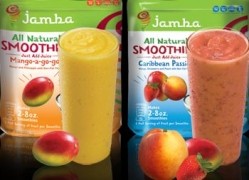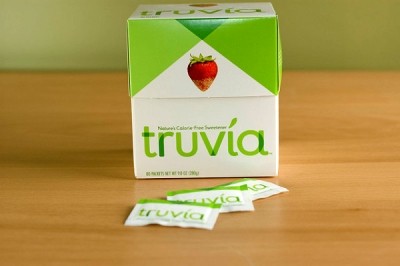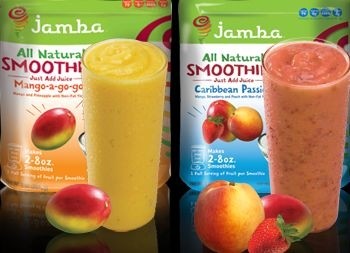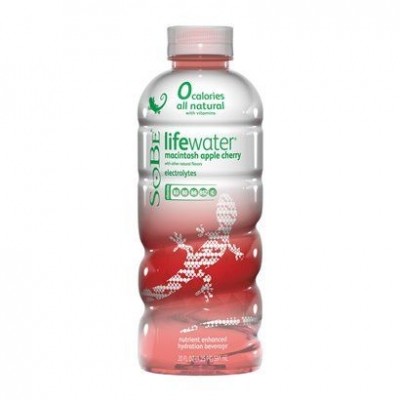Steviol glycosides are not ‘all-natural’, says new class action lawsuit

The complaint, filed by law firm Finkelstein Thompson LLP on behalf of plaintiff Kevin Anderson on March 12, is the latest in a string of class action lawsuits filed against firms including PepsiCo, Kellogg, ConAgra and Kraft for allegedly misleading consumers with ‘all-natural’ claims.
Anderson argues that Jamba Juice’s ‘all-natural’ smoothie kits deceive consumers because they contain “unnaturally processed, synthetic and/or non-natural ingredients” including ascorbic acid, citric acid, xanthan gum… and steviol glycosides.
While some of these ingredients might be derived from a natural source, says the complaint, the extraction and processing methods mean that shoppers would no longer consider them to be ‘natural’.
“A reasonable consumer would not consider food products containing unnaturally processed, synthetic substances or substances created via chemical processing to be ‘all-natural’.”
Steviol glycosides
As for obtaining steviol glycosides from stevia leaves, it says: “Although there are numerous extraction methods, some involve adding chloroform or hexane to dried plant leaves…
“Flocculants such as calcium hydroxide and aluminum sulfate may be used to facilitate the removal of undesired accompanying substances. Steviol glycosides are the demineralized and decolorized with ion exchangers and spray dried.”
It adds: “At times, concentrated solutions of hydrochloric acid and sodium hydroxide are used to regenerate ion exchange resins.”
Stevia industry source: This is getting very silly...
However, a stevia industry source said the wording of the complaint was very misleading.
He said: "Stevia can be extracted using some of the methods described in the lawsuit, although the major suppliers do not use these methods, so it is a bit of a blanket statement. We don't use hexane or hydrochloric acid, for example. Customers also ask detailed questions about extraction methods and they want us to walk them through every step of the process.
"But the more important point - that I think a 'reasonable consumer' would understand - is that if I open a pack of Reb-A sweetener or if I went into my backyard and chewed on a stevia leaf, the same molecule would pass my lips. And it is natural.
"All agricultural ingredients have to go through processing before they get to the consumer. This lawsuit is manipulating facts in order to paint something in a graver light."
Attorney: The growing threat of civil litigation
Speaking to this publication last month, Justin Prochnow, shareholder at law firm Greenberg Traurig LLP, said the lack of a legal definition of natural meant opportunistic plaintiffs’ attorneys were having a field day with all-natural claims.
He added: "Because the FDA has declined to formalize a definition of natural, plaintiffs' lawyers have seized upon the opportunity to file lawsuits over the use of 'all natural', knowing that the ultimate decision of whether a product is truly natural or not is one that will often have to be decided by a judge or jury.
"That usually means a long, drawn out case that forces many defendants to settle the case or risk huge legal fees, so the lack of a formal definition of natural is a great situation for plaintiffs' lawyers."
Speaking at the Nutracon conference last week, he added: “One of the biggest threats to the dietary supplements industry right now is the growing threat of civil litigation. You have to think at the moment, is it really worth making an all-natural claim?”
Is FDA 1993 definition very useful?
The FDA follows a 1993 policy that states: “[FDA] has not objected to the use of the term[natural]on food labels provided it is used in a manner that is truthful and not misleading and the product does not contain added color, artificial flavors or synthetic substances.”
However, this does not help firms fighting lawsuits over high fructose corn syrup; partially hydrogenated vegetable oils; ingredients extracted using organic solvents such as hexane; GMOs; pesticides and a whole raft of other ingredients some stakeholders argue do not belong in a product labeled as ‘all-natural’.
Writing in the blog of the Washington Legal Foundation last month, director of outreach Stephen Richer said the FDA should take action to address this issue, adding: “Legislatures, or regulatory bodies acting as an agents of the legislature, are far better suited to define politicized, complex terms like ‘natural’ than are judges and juries through class action litigation.”
Jamba Juice
Founded in 1990, Jamba Juice Company is a leading food and beverage retailer with more than 760 stores selling smoothies, juices, yogurt and other products. It has developed a range of consumer packaged goods including frozen bars and smoothie kits, which come in five flavors and feature the ‘all-natural’ claim.
A spokesperson said: “We just received the suit and are investigating the allegations. At this point, we have every reason to believe the ‘all natural’ claims on the smoothie kits are in full compliance with FDA guidelines.”











